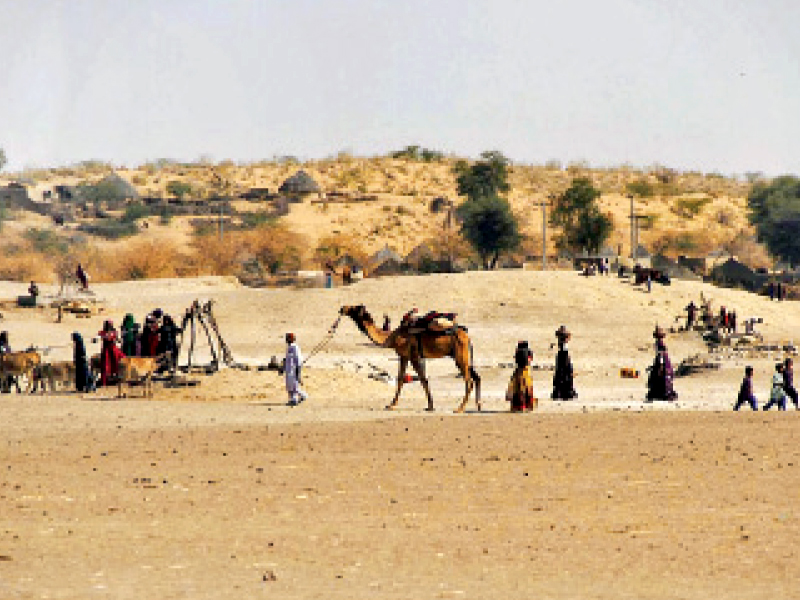
For the nomadic people of Sindh, the much hyped about migration from different parts of Tharparkar is not new. However the exodus does increase when drought hits the desert.
The people of the district, locally called Tharis, move to irrigated areas twice a year - in September and in March. The majority of the nomads belong to lower-caste Hindu families or to Muslim families that either depend on livestock or make a living by working in the fields. The reason for the routine migration is the two seasons of Rabi and Kharif, when wheat and rice are sown and harvested in the neighbouring areas of Thar.
If the desert experiences the required amount of rain then the people of Thar also move to agricultural areas where they can earn and save till the start of the next season. "Last year, half of my family moved to Sindh [Badin] but this year we are all moving there because there is no reason to stay," said Dodo, an elder of a migrating family. "Over there, we'll at least have some wheat and some money for next year. We can't stay here in the hope of relief items that will be insufficient for my 20-plus family members."
Dodo claimed that pride would not allow him to leech off the government. "We aren't beggars," he said with disdain. "We can work and can earn for our children. How much and for how many days will we be given food?"
Wasayo, a member of the Bheel community from Diplo - where the drought has had a drastic impact - said that his family has been working for a landlord of Tando Muhammad Khan for the last 20 years. "Some of our family members used to work in the fields but the situation has changed," he explained. "Now, we all have to move."
A Tango Bago social activist, Muhammad Hanif, also revealed that migration is commonplace in the area but added that the drought has increased the numbers. "The same sort of migration took place last year as well but the numbers are gradually increasing," he revealed. "The people of Tharparkar have a reputation of being hard workers and landlords prefer them as they work in the fields along with their women and children."
Naroo, a resident of the village Lonyar, who was preparing to move to Nawabshah, informed The Express Tribune that the relief items won't be enough to fulfil his family's requirements for the whole year. "At best, we will be given food for a week, but surely not for the whole year," he said, refusing to rely on relief support. "We'll come back within two months with sufficient wheat and cash to last us for a while."
Naroo also said that the nomads don't want to abolish their ties with landlords because of the relief packages. "Our landlords will hire others, if we don't go there," he explained. "We will stop migration only if permanent measures are taken for us."
The landlords of the adjacent areas also claimed that the migration is a routine matter, saying that famers have been arriving there in search of work for many years. "Their movement is limited when there is enough rain in Tharparkar," said a landlord of Badin, Muhammad Arab.
Out of the 46 Union Councils (UCs) of Tharparkar, the three UCs of Bhitaro, Kaloi and Morano have a canal system. According to the people of Diplo, including former MNA Arbab Zalaullah, the migration from this particular region can be minimised if water is released to the area but it has not been provided water since 2008.
Published in The Express Tribune, March 15th, 2014.
COMMENTS (1)
Comments are moderated and generally will be posted if they are on-topic and not abusive.
For more information, please see our Comments FAQ






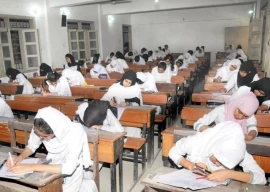

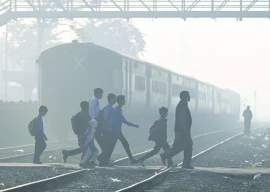



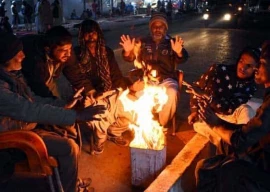


1735380262-0/Untitled-design-(75)1735380262-0-270x192.webp)
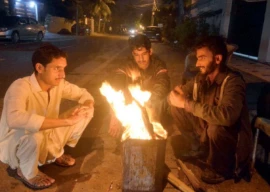






I feel helpless. Such stories makes me lose hope in Pakistan.